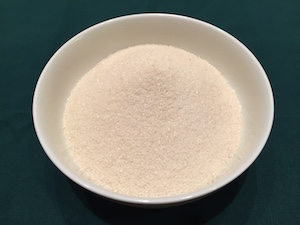Important Facts: an estimated 74% of all packaged foods contain added sugars and sugar has 61 different names making it difficult to decipher on a food label.
In December 2014, after reviewing more than 8,000 scientific papers, a team of scientists at the University of California in San Francisco (UCSF) determined that the consumption of sugar causes disease. Their findings support the claim that American’s intake of sugar correlates to the rise in fatty-liver disease, the emergence of Type 2 diabetes as an epidemic in children and the dramatic increase in metabolic disorders.
This makes a lot of sense because:
- When consumed, all types of sugar produce acid in the body, creating an environment that supports disease. Learn more about the role of acidity and alkalinity in the body.
- Added synthetic sugars (like sucrose and high fructose corn syrup) consist of empty calories and contain NO essential nutrients. In order to maintain good health, our bodies need essential vitamins and nutrients. When we fill up on foods high in empty calories, we deny our body what it needs to stay healthy.
- High amounts of fructose can overload your liver. This includes fructose from fruit (natural sugar) and man-made synthetic sugars (sucrose and high fructose corn syrup). Our bodies do not have a physiological need for fructose. As a result, the liver is the only organ that can metabolize it. Most processed food is loaded with added sugar. When people consume large amounts of sugar, the liver gets overloaded and starts turning the fructose into fat which then lodges in the liver and causes non-alcoholic fatty liver disease.
- Eating large amounts of sugar is toxic as it causes your body to develop resistance to insulin which can contribute to many diseases (metabolic syndrome, obesity, cardiovascular disease and especially type II diabetes).
- Sugar drives inflammation within the body, creating the perfect environment for disease to thrive.
- Sugar consumption promotes cancer. Cancer is defined as the uncontrolled growth and multiplication of cells. It is important to understand that insulin is one of the key hormones in regulating this growth. This is why having consistently elevated insulin levels due to sugar consumption can contribute to cancer.
What now? Information is power!
- Begin noticing how much sugar is in the foods you are eating and try limiting the amount you consume by choosing foods with a low Glycemic Index (GI). (GI list of common foods)
- Read ingredient labels and make conscious choices about the prepackaged foods you buy. Our blog post, Understanding the Ingredients List on Food Labels, can help. Also, read How to go plant-based and Balancing your pH to help you select different foods that better support your health.
- Begin organizing your food pantry. Read Setting up your food pantry.
- Try some of our delicious recipes.
- When you do eat foods with sugar, focus on eating healthy natural sugars: agave syrup, raw coconut sugar, maple syrup, and stevia. Check out our Plant-based4Health Food Pantry Essentials List.
- Want more information? Watch Jaime Oliver’s “Teach Every Child About Food” TedTalk and Nicole Avena’s “How Sugar Affects the Brain” TedEd.

